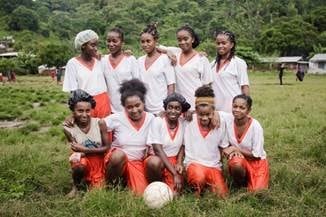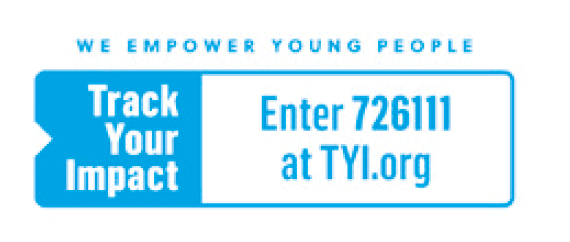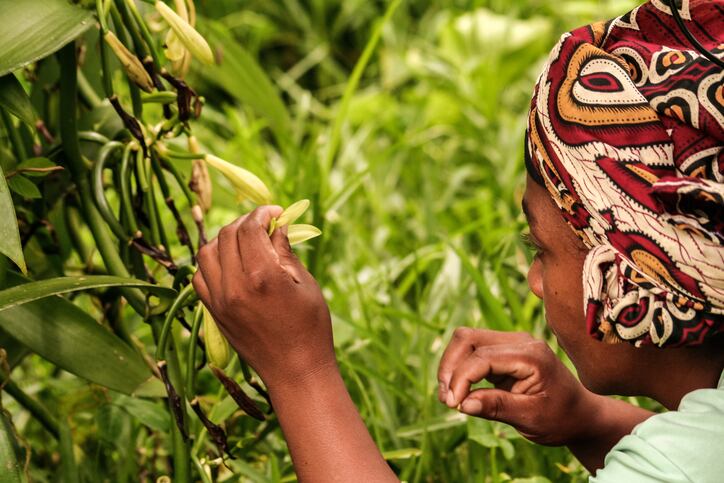Anglo-Dutch consumer goods giant Unilever has been working in partnership with ingredients group Symrise to improve the livelihoods of the Madagascan farmers that supply vanilla to its ice cream brands since the beginning of 2014. Over the past six years, the partners have extended the scope of their cooperation and brought in partners like Save the Children and, most recently, ME to WE in the UK.
The collaboration has already had a positive impact on more than 40,000 people in 76 villages in Madagascar, the world's eleventh poorest country where around 80% of vanilla is sourced globally.
Unilever believes the time is ripe to begin telling this story to UK consumers in relation to its iconic Wall’s ice cream brand, Ian Maskell, global vice president for marketing at Wall’s, explained.
Unilever’s ice cream brands including Wall’s have been on a roll in the UK market. Ice cream has recorded compound annual growth rate of 15% since 2016. In the year to end-April, this trajectory continued steadily with sales rising 14% and market share in the UK gaining 135 basis points.
Speaking during the ‘Wall’s Week of Joy’ campaign, Maskell told FoodNavigator “We have made a judgement call that there is a consumer appetite and we feel the British consumer is one of the most sensitive to sustainability issues.”
The company also decided to roll out the major new campaign in the UK to leverage its “very engaged” sales team and critical mass in the market, Maskell continued. “These things are important."
Embedding sustainable approaches to vanilla
One of the core tenants underpinning the Unilever-Symrise vanilla strategy is the need to build farmer incomes while limiting any negative impact increased production could have on the environment in Madagascar.
“We really all believe as partners that resilience starts with farmer income. Making sure that farmers have a good income and are able to keep that income,” Hamish Taylor, a sustainability adviser at Symrise, explained.
Symrise sources 90% of its vanilla – and 100% of the vanilla it supplies to Unilever - directly from smallholders. The group is able to leverage this direct relationship with farmers in Madagascar to help move its suppliers out of poverty.
This starts with a “fair price”. A premium is paid for vanilla that is Rainforest Alliance certified – meaning that the commodity is not contributing to deforestation activities or ‘tavy’ as it is called in Madagascar. A further premium is paid for quality, which is measured on a sliding scale, Taylor explained.
This incentivises good agricultural practices – which also increase yield – and are promoted through the group’s ‘Farmer Field Schools’.
Symrise also encourages Madagascan farmers to diversify the cash crops they cultivate to include clove, ginger and cocoa, as well as optimising practices to cultivate subsistence crops such as rice. Reducing farmer reliance on vanilla creates a positive feedback loop, empowering smallholders to leave the pods on the trees until they are prime for harvesting and therefore improving quality.
“An important part of the relationship between Symrise and Unilever is about quality. We need to have the right quality of beans for the products that we supply to Unilever. They count on us to supply the right quality. Our relationship with the farmers means we can make sure they are set up and equipped to supply the right quality for Unilever,” Symrise global competence director for vanilla, Yannick Leen, explained.
But the partnership’s approach goes beyond boosting farmer income because this alone is not enough to tackle poverty in rural communities. For example, Taylor added: “If you look at poverty prevention, access to healthcare and health insurance is critical. In the past we were finding a health crisis would trigger a financial crisis that would mean they could not keep the entire value of their crop because they would need to borrow money quickly. We then give them financial awareness training through farmer business schools.”
Since Save the Children joined the partnership three years ago, Unilever and Symrise have been working alongside the charity to establish village level savings and loan associations and encourage cooperatives. Save the Children have also been creating youth groups throughout the country.

The partnership is also working to promote biodiversity. “Our biodiversity status may not be good enough yet – one company alone cannot be good enough – but deforestation and biodiversity protection are very much on the agenda. Not just on the agenda but being acted upon,” Taylor stressed.
Promoting change closer to home
This month, the Wall’s Vanilla for Change partnership also started to work with charity ME to WE, a social enterprise that encourages young people to ‘do good through their everyday choices’.
Purchases of Wall’s products will support ME to WE’s WE Schools programme, which provides educational resources to teachers. The extended partnership will be supporting 100,000 young people through the programme.
“The impact we will be making in the UK will be delivered through our WE Schools programme, which is an educational programme that inspires young people to make a difference in two ways. One, in their own community through a local action plan, and, two, through an international community,” Oonagh Turnbull, ME-to-WE UK director, told FoodNavigator.
The programme and the resources it provides are unbranded and not directly linked to the Wall’s brand in schools. “This isn’t about bringing Wall’s into schools… We are all bringing the best of what we do to the party,” Turnbull explained.
She believes the movement reflects a desire among young people to “get involved in their communities” and “make a change to the world”.
Turnbull believes that this is reflected in the purchase decisions young people make, which, she said, are increasingly guided by sustainability concerns. The Vanilla for Change campaign is therefore an excellent fit for ME to WE.
“We work day in day out with young people. We know that they care. They want to have the transparency that is associated with products they buy, they want to know where products come from and the stories around that.”
Simplifying a complex story
Unilever’s sustainable vanilla sourcing strategy is complex and involves multiple moving pieces. Vanilla for Change is a complicated campaign that draws on two parts: the supply chain in Madagascar and the positive impact the business hopes to have in the UK.
To communicate it effectively, the company has brought it down to a “human” level, Pilar Pedrinelli, Wall’s global purpose & vanilla for change lead at Unilever explained.
“The most important part of Vanilla for Change is what you see here: lots of people in the room. Because no one can do it alone. We all believe in joining forces for good.
“The challenge for this campaign was how to translate [this multifaceted picture] into a story that was simple from a consumer point of view. I am a consumer myself. Talking about sustainability – what I see out there is something that is super complex and something that is super far away from me.
“The challenge I wanted to address is translating it into something that people would care about. The first thing I thought is as human beings we are all interested in humans and stories.”

Consumers will be able to use a ‘track your impact’ platform to access details on Wall’s vanilla supply chain and the impact it is having both in Madagascar and the UK. The platform will be made accessible via an on-pack QR code.
“In the ecosystem they will land on, consumers will hear about the stories of people we help. There are numbers in there because we are proud of our numbers. But the first thing consumers will see is a person and how this programme changed their story,” Pedrinelli revealed.
Maskell believes that the “simple line” – Vanilla for Change – is a “consumer friendly” way of articulating the influence that Unilever’s vanilla sourcing strategy is having on communities. “Our vanilla – which is a specific ingredient very synonymous with ice cream – is now impacting change across communities. Hopefully consumers can engage with the line we are articulating.”
He also noted that technology – and the changing relationship consumers have with it - has been a key enabler for the campaign.
“Consumers are very familiar with this technology, you don’t have to have specific software on your phone. It takes you into a rich environment that you can then navigate through. It sounds simple, but it is these changes in behaviour that are making this activation point possible. A few years ago, it was too hard to do this because people weren’t that au fait with QR codes etc.”
“The technology really enabled the story to told."


